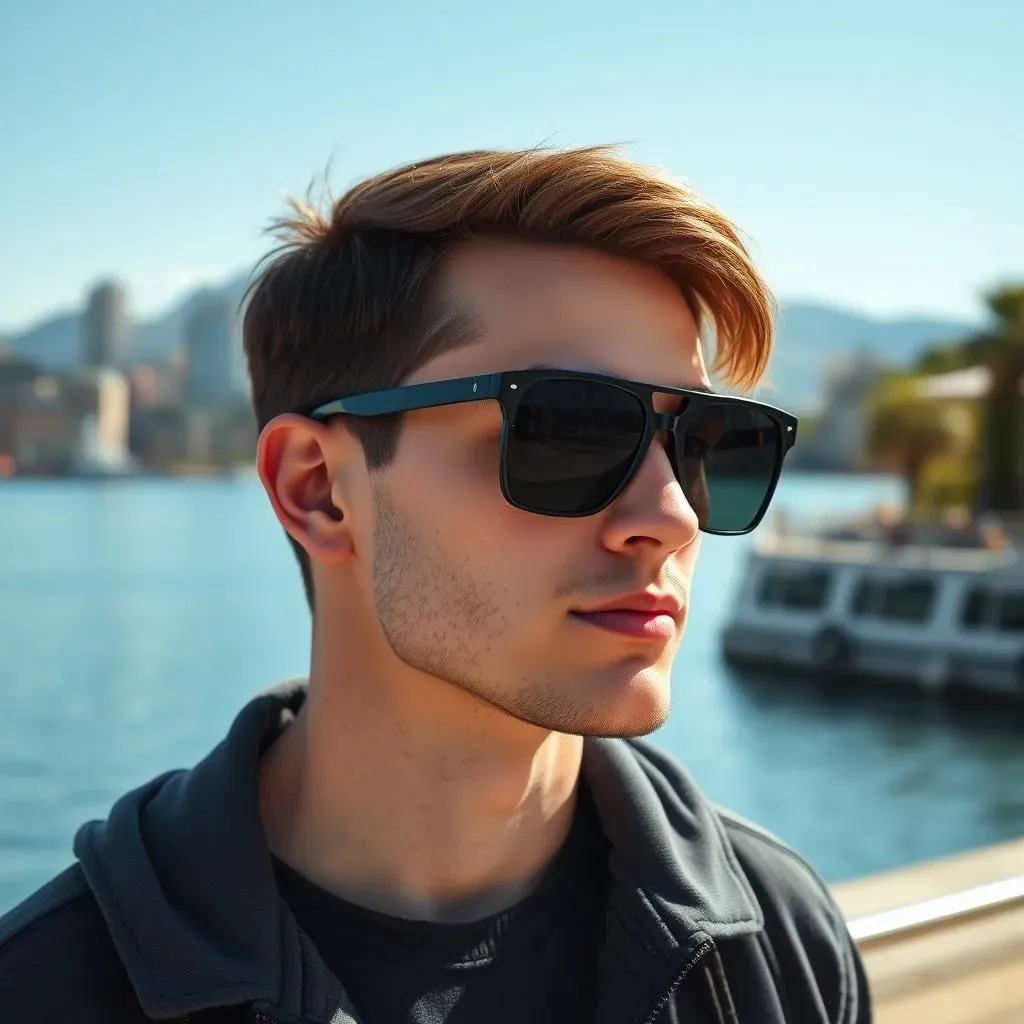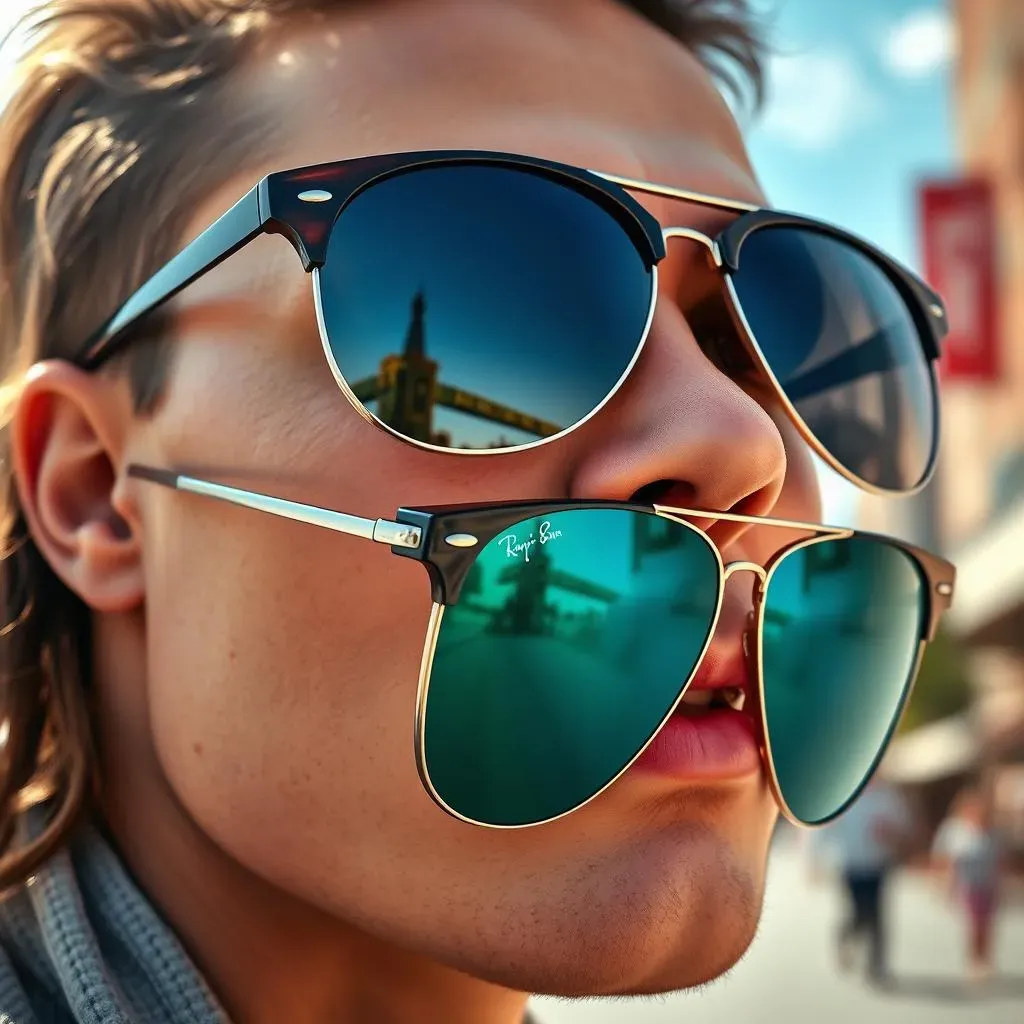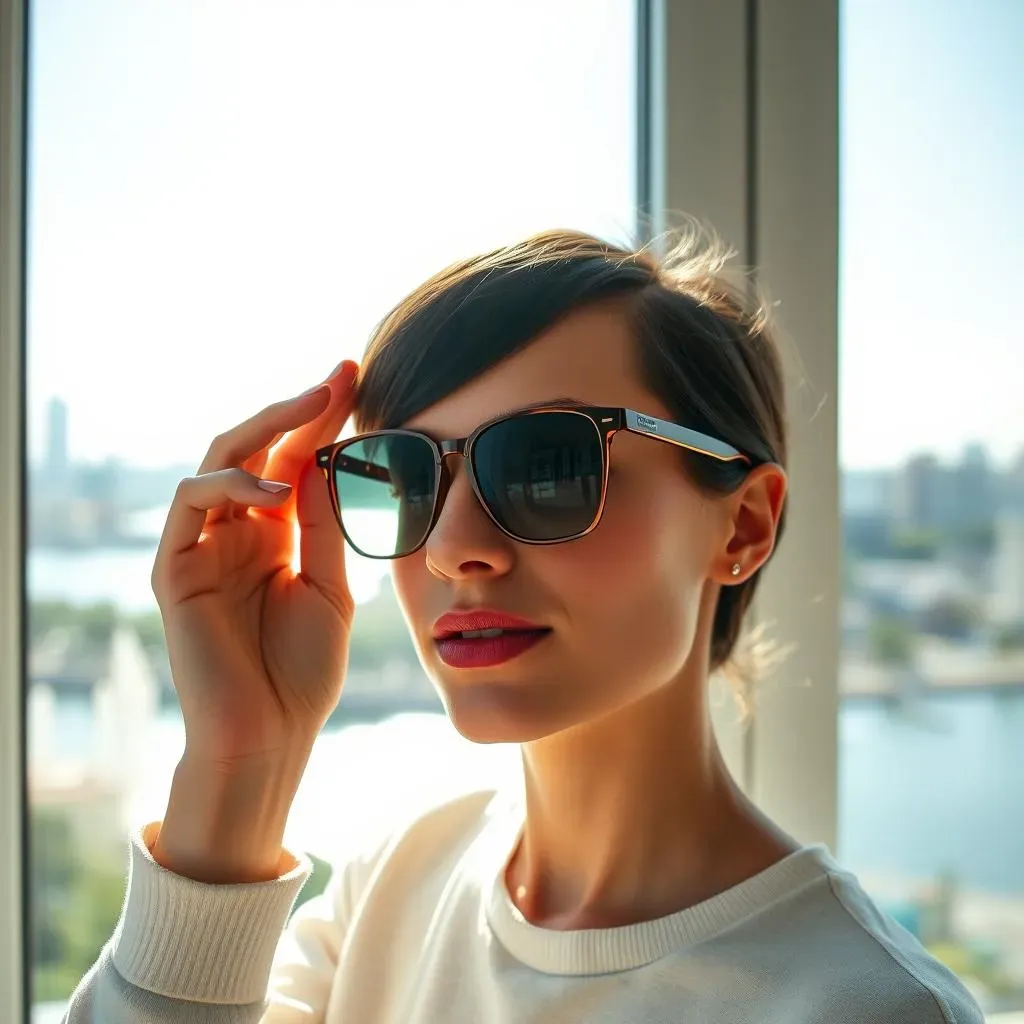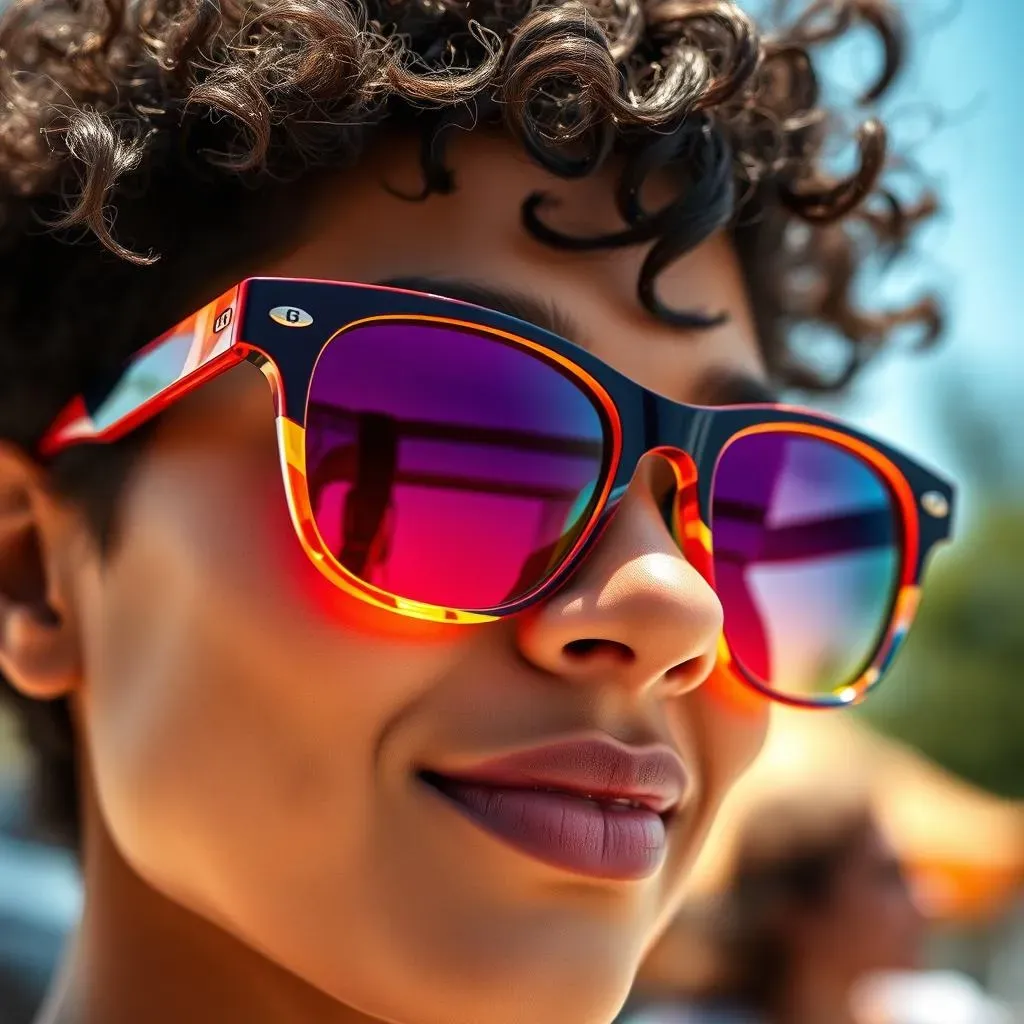Table of Contents
Do bright lights make you squint? Does the sun feel like it's personally attacking your eyeballs? If you're nodding, you're likely among the many with sensitive eyes. Finding the right sunglasses isn't just about looking cool; it's about comfort and relief. But with so many options out there, how do you choose? This is where we come in. Think of this as your friendly guide to navigating the world of eyewear for sensitive peepers. We'll explore what makes certain sunglasses better than others, peek at some top-rated brands and models, and share real-world experiences through sunglasses for sensitive eyes reviews. Plus, we'll arm you with essential tips to pick the perfect pair. Ready to ditch the glare and say hello to comfortable vision? Let's dive in.
What to Look for in Sunglasses for Sensitive Eyes
What to Look for in Sunglasses for Sensitive Eyes
Lens Darkness and UV Protection
First off, let's talk about how dark your lenses should be. It might seem like the darker, the better, right? Not always. Super dark lenses can actually make your eyes work harder in dimmer light. Instead, focus on lenses that cut down on brightness without making everything seem like nighttime. Think about it like adjusting the volume on your TV – you want it just right, not too loud and not too soft. More importantly, make sure they offer 100% UVA and UVB protection. That's the real superhero power when it comes to shielding your sensitive eyes from the sun's harmful rays.
Polarization and Lens Color
Next up: polarization. These lenses are like magic for blocking glare – those annoying reflections bouncing off car hoods and puddles. If you've ever been blinded by a sudden flash of sunlight, polarized lenses are your new best friend. They can really make a difference, especially if you're driving or spending time near water. Lens color also plays a role. Gray and brown tints are generally good all-arounders, reducing brightness without messing with colors too much. You can explore more about polarized options if glare is a major issue for you.
Frame Style and Fit
Don't forget about the frames! A good fit is key for comfort, especially if you plan on wearing your sunglasses for extended periods. Look for frames that sit comfortably on your nose and don't slide down. Wraparound styles or those with side shields can offer extra protection by blocking light from sneaking in from the sides. It's like building a little fortress for your eyes! And if you're doing something active, like hiking or biking, a snug fit is even more important. Consider sunglasses for outdoor activities for more robust frame options.
Top Sunglasses Brands and Models for Sensitive Eyes
Top Sunglasses Brands and Models for Sensitive Eyes
Maui Jim: Aloha to Glare-Free Vision
Alright, let's talk specifics. If you're serious about shielding those sensitive eyes, Maui Jim should be on your radar. These guys are like the superheroes of sunglasses for a reason. They're famous for their incredible polarized lenses that not only cut glare but also boost colors. Seriously, the world just looks better through them. I remember trying on a pair for the first time and being amazed at how the reflections on the water just disappeared. It was like magic! Plus, they've got a bunch of different lens colors, so you can find one that works just right for your light sensitivity. Think about exploring their range of polarized sunglasses – you won't regret it.
Ray-Ban: Classic Cool with Options for Sensitivity
Now, who hasn't heard of Ray-Ban? They're the cool kids of the sunglasses world, and guess what? They're not just about style. While they've got those iconic looks down pat, many Ray-Ban styles can be kitted out with lenses that are great for sensitive eyes. You can often get their frames with polarized lenses or lenses that offer high levels of UV protection. It's like getting the best of both worlds – timeless style and serious eye comfort. My first "grown-up" pair of sunglasses were Ray-Bans, and knowing I could get them with lenses that actually helped my light sensitivity was a huge win.
Here are a few popular Ray-Ban models to consider:
- Ray-Ban Aviator
- Ray-Ban Wayfarer
- Ray-Ban Clubmaster
Beyond the Big Names: Other Great Choices
Of course, Maui Jim and Ray-Ban aren't the only players in the game. Brands like Oakley are fantastic, especially if you're active. Their wraparound frames are awesome for blocking light from all angles, which is a big deal if you're dealing with serious light sensitivity. Then there's Costa, known for their super clear lenses that are great for being out on the water. Don't forget about brands that specialize in lenses for specific conditions, too. For example, if you're hitting the trails, check out sunglasses for outdoor activities which often feature durable frames and specialized lens tints. It's all about finding what fits your lifestyle and your specific sensitivity triggers.
RealWorld Reviews: How These Sunglasses Perform
RealWorld Reviews: How These Sunglasses Perform
Maui Jim in Action: Seeing is Believing
Let's get down to brass tacks: how do these sunglasses actually hold up in the real world? When it comes to Maui Jim, folks rave about the clarity. I've heard stories of people who used to dread driving on sunny days suddenly feeling comfortable behind the wheel. One person I chatted with mentioned that their migraines, often triggered by bright sunlight, lessened significantly after switching to Maui Jims. It's not just about dimming the light; it's about cutting the glare and making everything sharper. Another friend, who's a keen angler, swears by them for spotting fish in the water, thanks to the polarization. It really brings home how good sunglasses can change your daily life.
Ray-Ban: Style Meets Sensitivity Solutions
Ray-Ban's reputation isn't just built on looks; people genuinely find relief wearing them. While they might not always be the first brand that comes to mind for super sensitive eyes, the option to add specialized lenses makes a big difference. I've seen comments online from users who appreciate the classic Ray-Ban style but needed that extra protection. They often opt for polarized lenses in their Wayfarers or Aviators. It's like getting that iconic cool factor without sacrificing eye comfort. However, some users note that the fit can be crucial – if they're not snug enough, light can sneak in from the sides. This is where considering frame style, like wraparound frames, becomes important.
Brand | Common Feedback | Best For |
|---|---|---|
Maui Jim | Excellent clarity, glare reduction, color enhancement | Driving, outdoor activities, bright sunlight |
Ray-Ban (with specialized lenses) | Stylish, good UV protection, polarization options | Everyday wear, moderate light sensitivity |
Beyond the Usual Suspects: Real Experiences
Don't count out the other brands! Oakley wearers often highlight the secure fit and how well they block light from all angles. This is a big plus for those with extreme light sensitivity or those engaging in sports. I remember reading a review from someone with photophobia who found solace in Oakley's wraparound designs. Costa gets a lot of love from those on the water, praising their lens clarity and ability to cut through reflections. Then there are brands like Cocoons, specifically designed to fit over prescription glasses, which are a lifesaver for many. Ultimately, the best way to find what works is often through trial and error and reading what others with similar sensitivities have experienced. Checking out sunglasses for photophobia reviews can offer deeper insights if you experience severe light sensitivity.
Tips for Choosing the Right Sunglasses for Your Sensitivity
Tips for Choosing the Right Sunglasses for Your Sensitivity
Consider Your Specific Sensitivity Triggers
Alright, so you're ready to find your perfect sun shields? First things first: think about what exactly makes your eyes go "ouch!" Is it the overall brightness of a sunny day? Or are you more bothered by the glare reflecting off shiny surfaces? Maybe fluorescent lights indoors are your nemesis? Understanding your triggers is like having the cheat code. If glare is your main issue, prioritize polarized lenses. If you're sensitive to all bright light, focus on good UV protection and comfortable lens darkness. Knowing your enemy is half the battle, my friend.
Think about these common triggers:
- Bright sunlight on clear days
- Glare from water, snow, or car hoods
- Fluorescent lighting
- Digital screens (though sunglasses aren't ideal for this, consider blue light glasses!)
Try Before You Buy (If Possible)
This might seem obvious, but it's super important. Just like you wouldn't buy shoes without trying them on (unless you're really brave, or maybe a little nuts), you ideally want to try on sunglasses before committing. Pop into a store and actually wear them for a few minutes. Walk around, see how the colors look, and check if they feel comfortable. Do they pinch behind your ears? Do they slide down your nose when you look down? These are vital things to know. If buying online is your only option, make sure there's a good return policy. You might even consider ordering a couple of different pairs to try and sending back the losers. Think of it as a sunglasses try-out session! And if you're unsure about lens colors, grey lenses are often a safe bet for not distorting colors too much.
Finding Your Perfect Shade: Final Thoughts
Navigating the world of sunglasses for sensitive eyes doesn't have to be a headache. Remember, the best pair for you balances protection, comfort, and your specific needs. Consider features like polarization and lens color, and don't shy away from reading sunglasses for sensitive eyes reviews to hear from others. Ultimately, the right sunglasses will make a world of difference, allowing you to enjoy the sunshine without the sting.
